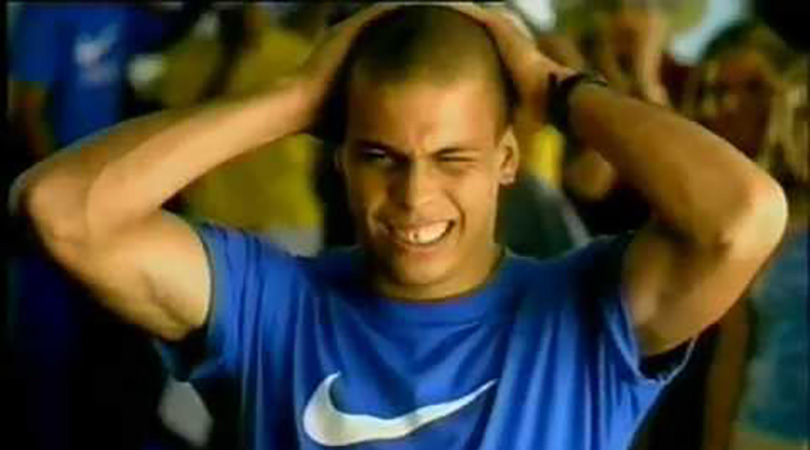World Cup icons: Smoker, drinker, thinker Socrates gets himself in shape – but suffers in Spain (1982)
The great icon of Brazilian football never went beyond a World Cup quarter-final... but that was never his priority
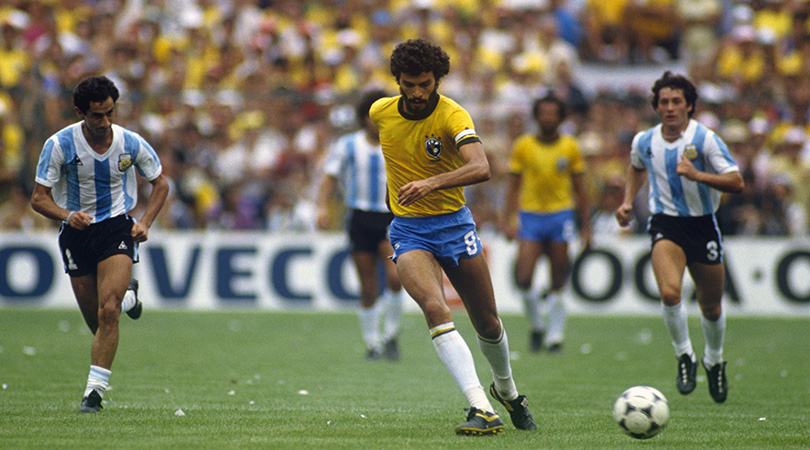
Vincent van Gogh sold one painting in his lifetime. A few months after Belgian art collector Anna Boch paid 400 francs (about £700) for The Red Vineyards near Arles, Van Gogh shot himself in the chest and died a penniless alcoholic with only one ear. His impressionist masterpieces, however, would go on to fetch millions and inspired Picasso, Matisse and Munch to re-imagine what art would mean in the 20th century.
Chain-smoking, beer-loving Socrates never went beyond the last eight of a World Cup. The Brazil team he captained at Spain '82 didn't even make it out of the second group stage after defeat to the Italians. Yet the indelible image of that finals is a rangy playmaker wearing impossibly tiny shorts, whose effortless grace, close control and vision were ethereal.
Socrates had three childhood heroes, none of them footballers: Che Guevara, Fidel Castro and John Lennon - revolutionaries who wanted to change the world. Magrão (the Big Skinny) took such iconoclasm and placed it at football’s heart. Imagine Keith Richards obsessed with Hungary’s Magical Magyars instead of Chuck Berry.
Rule of three
“I smoke, I drink, I think,” is hardly the average football player’s philosophy, but there was nothing average about Socrates, who became a left-wing agitator hell-bent on bringing democracy to a country ruled by military dictatorship.
The eldest son of a tax inspector, he turned professional only in 1974, aged 20, after finishing a medical degree, applying the same effort to his studies as he did on a pitch: almost none. Outrageous natural talent trumped effort.
“Anyone who runs doesn’t think,” he once said. “And anyone who thinks doesn’t run.”
Get FourFourTwo Newsletter
The best features, fun and footballing quizzes, straight to your inbox every week.
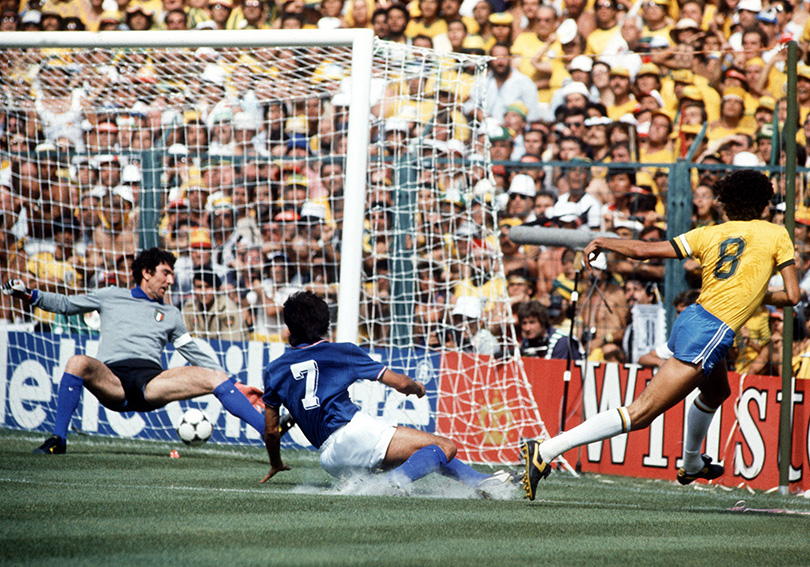
The primary reason he chose football over medicine was to play at the World Cup. For the only time in his life, he gave up the fags and cut back on the booze that would ultimately take his life at the tragically early age of 57. Having put himself on a strict five-month fitness plan to turn fat into muscle, he shed nearly two stone.
The first day that the squad assembled, Socrates’ team-mates couldn't believe what they saw. He was the quickest, strongest and had the hardest shot of the lot.
“What’s this? Magrão at the front of the group doing laps!” Zico shouted, to the sound of laughter from behind. “What’s going on?”
“He always talked about how hard it was to look after himself and stay in shape,” Zico said years later. “He trained and he set a really strong example. At that World Cup he was focused on being in top form. He proved that there was an athlete inside him.”
Beautiful game
This was also the original incarnation of jogobonito, in an almost position-less system which Socrates had dubbed “organised chaos”, to clip the wings of Dutch Total Football.
“Everyone has the freedom to play how they wish as long as they perform certain basic functions,” the skipper said shortly before the finals. “As amazing as that might seem, it works. I play on the wing, I’m a centre-forward, a sweeper, holding midfielder – it depends on how the game is going.
“Even if we don’t win the title, we will have altered the traditional schemes of 4-2-4 and 4-3-3 and whatever else [the Netherlands] have invented.”
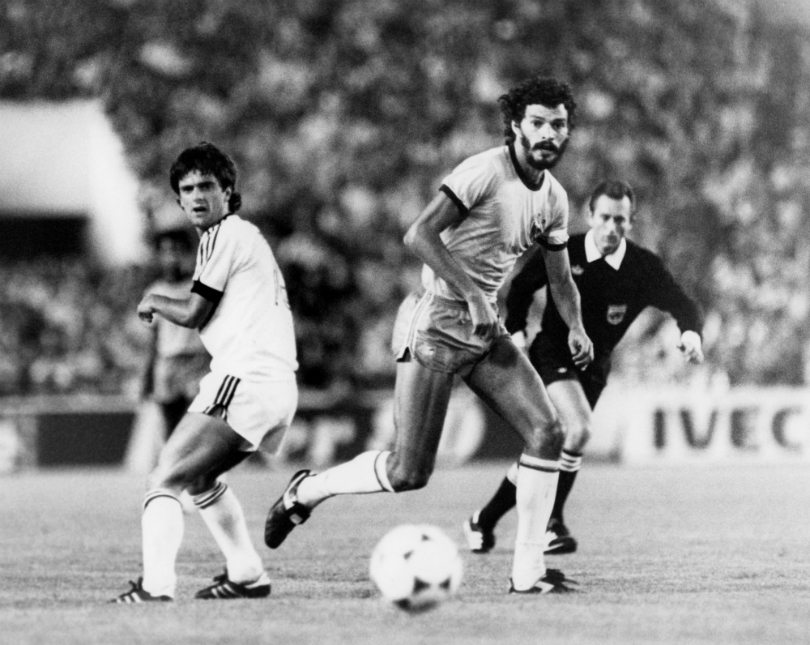
It did not start well. With 15 minutes left of Brazil’s opening game against the USSR, they were 1-0 down. The ball fell to Socrates on the edge of the area – “a wall of red shirts ready to spill their own blood to stop me”. He feinted to shoot, turned twice more and unleashed a ferocious shot into the top corner.
“And the scream came: ‘Goooooal,’” he later said. “No, not a goal. An endless orgasm.”
Socrates was no less brilliant against Scotland, New Zealand and Argentina. Then came Italy, a semi-final place on the line. For the third time in five matches, Brazil went behind, Socrates’ 12th-minute equaliser a goal so perfect in its intricacy of passes with Zico it deserves its own ballet. Yet Brazil lost 3-2. Looking back, the Seleção's defensive slackness – two of the Azzurri’s goals came from individual errors – remains jaw-dropping.
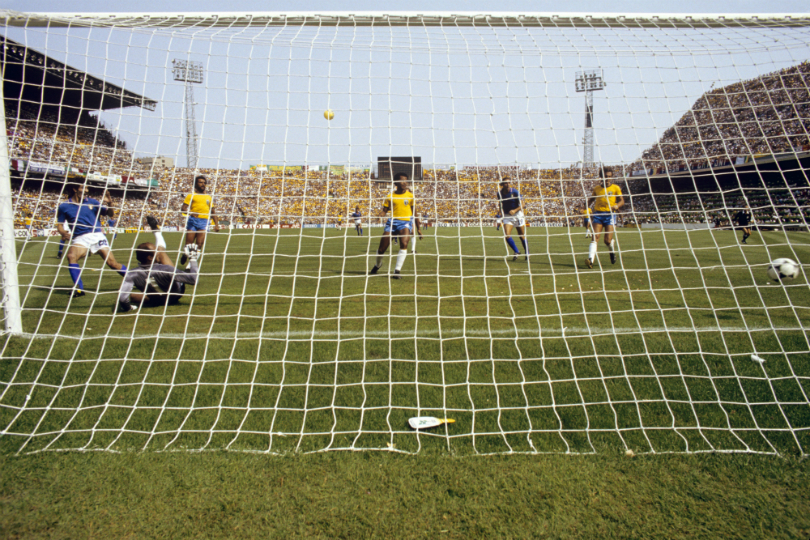
It was the day many believe football lost its soul. The day that the immovable object killed the irresistible force – dead. Paolo Rossi, who scored a hat-trick in Barcelona that day, was the ‘killer’ Brazil did not possess.
Yet nor did they want him.
“To win is not the most important thing,” stated Socrates. “Football’s an art and should be showing creativity. If Vincent van Gogh and Edgar Degas had known when they were doing their work the level of recognition that they were going to have, they would not have done them the same. You have to enjoy doing the art and not think, ‘Will I win?’”
The words of a serial loser. Just like that painter with one ear.
Andrew Murray is a freelance journalist, who regularly contributes to both the FourFourTwo magazine and website. Formerly a senior staff writer at FFT and a fluent Spanish speaker, he has interviewed major names such as Virgil van Dijk, Mohamed Salah, Sergio Aguero and Xavi. He was also named PPA New Consumer Journalist of the Year 2015.
